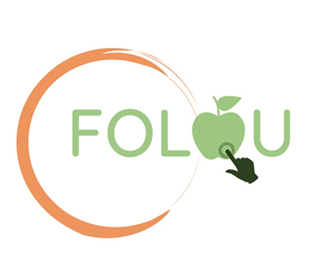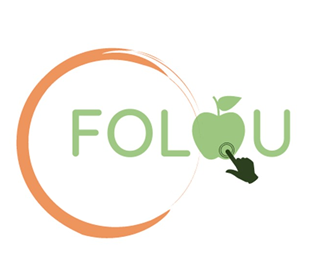
Over 4 years, 16 multidisciplinary actors from 10 European countries are joining forces to prevent and reduce the food loss at the primary production stage by building a deep understanding of the impact of food losses and setting up a mechanism allowing a change based on their monitoring and measuring.
Every year a significant amount of food is lost during primary production. This has negative consequences for society, contributing to food insecurity, damaging the environment, causing greenhouse gas emissions, wasting water and degrading ecosystems and their biodiversity.
Food loss (FL) prevention strategies are facing several challenges, including regulatory, technical, scientific and social barriers. The EU Commission Decision (EU) 2019/1597 established a common methodology and minimum quality requirements for measuring food waste, but excluded primary production due to its complexity and cost. At the technical and scientific level, there is still a lack of a common measurement methodology to estimate FL at the primary stage, as well as insufficient knowledge and understanding of the underlying drivers. In addition, key stakeholders in the value chain lack relevant skills to effectively prevent FL and implement solutions.
Funded by Horizon Europe, the FOLOU project aims to prevent and reduce the amount of food intended for human consumption that is ultimately lost at the primary production stage and to support the transition towards sustainable EU food systems by reducing FL at the primary production stage. The project aims to raise awareness about the magnitude of FL and establish mechanisms for measuring, estimating, monitoring and reporting, also assessing the extent and impact of FL.
To ensure a successful adoption of its outcomes, FOLOU organises its activities into a comprehensive action plan focusing on four main levers of change: understanding, measuring, training, and adopting.
By addressing these areas, FOLOU aims to create a more sustainable and efficient food system in the EU, contributing to the reduction of FL and the promotion of sustainability in the food production sector.
Understanding food loss
The need for a consistent definition of FL, distinct from the EU’s definition of food waste, is crucial in the achievement of the FOLOU goals. FOLOU defines FL as any harvest-mature plant, animal, or living being (including inedible parts) that is not harvested or removed from the supply chain without becoming animal feed, by-products or waste. To further understand, FOLOU is developing a behavioral framework to categorize and analyse direct and indirect drivers of FL, including environmental, societal and behavioral factors.
Measuring Food Loss
FOLOU aims to determine the quantity of FL per commodity group at national and EU levels. The project developed a FL Quantification Manual detailing how to quantify across various food groups: fruits and vegetables; cereals and pulses; roots, tubers and oilseeds; meat and animal products; aquaculture and fisheries. This will become a reliable guideline for regional and national policy makers to set up a monitoring strategy to quantify and take actions to reduce food losses at Member State level.
Nevertheless, traditional methods for quantifying food loss at the primary sector has to be complemented with innovative ones that can facilitate data collection on food loss at the primary sector. Therefore, FOLOU developed and tested 6 innovative cost-effective measurement technologies (including drones, blockchain, social media analysis, etc.), through field campaigns, data acquisition, annotation and the development of prototype models.
The sustainability quantification method for FL at primary production has also been adapted and defined for this specific phenomenon, providing a solid framework to understand the sustainability burdens at country and aggregated level related to the food loss at the primary sector. The tool will build on work previously done by the JRC and in line with the Product Environmental Footprint (PEF) and the Organisation Environmental Footprint (OEF) methods and will be made freely available at the EU Platform on Food Losses and Food Waste.
Training
To reinforce stakeholders expertise on FL and favour the implementation of a harmonized measurement and estimation method for preventing and reducing food losses, FOLOU is developing an eLearning centre offering five tailored courses, expected to start from mid-2025:
- Introduction to Primary Production FL
- Measuring FL; Implementing FOLOU Methodology
- Technological Innovation in FL Measurement
- FL Sustainability Implications
- Integrating FL into Policy and Decision-Making
Adopting
FOLOU also works on well-informed and more effective policy strategies for preventing and reducing food losses and waste across the food system. The FOLOU Twinning Regions Programme will provide tailored knowledge transfer to regions, directly supporting public administrations to develop a national FL registry, technical guidance on innovative tools and validating the methodology.
An in-depth review has been conducted to understand the state of the art of national and regional FL regulations and policies, based on an exhaustive analysis affecting FL management. The analysis has been completed on EU level, for the FOLOU frontrunner region Catalonia and for 7 of the 9 Consortium partner countries, and it is a solid starting point to set new recommendations for policy makers across the EU.
As additional contributions of interest to the twinning regions, FOLOU has engaged in clustering activities with seven European projects working in similar topics, such as WASTELESS, and actively collaborate in several platforms (e.g., Biorefine Cluster, EU Food Loss and Waste Prevention Hub, Sustainable Food Systems Network, Food2030 Project Collaboration Network).
More information about the FOLOU project is available on www.folou.eu
Contact:
Joan Colon Jorda
Head of the Digitalization for Sustainability Unit
Senior researcher of the Sustainability Accounting and Optimization Unit
BETA Technological Centre of the University of Vic-Central University of Catalonia

Funded by the European Union. Views and opinions expressed are however those of the author(s) only and do not
necessarily reflect those of the European Union or the European Research Executive Agency (REA). Neither the European
Union nor the granting authority can be held responsible for them.

